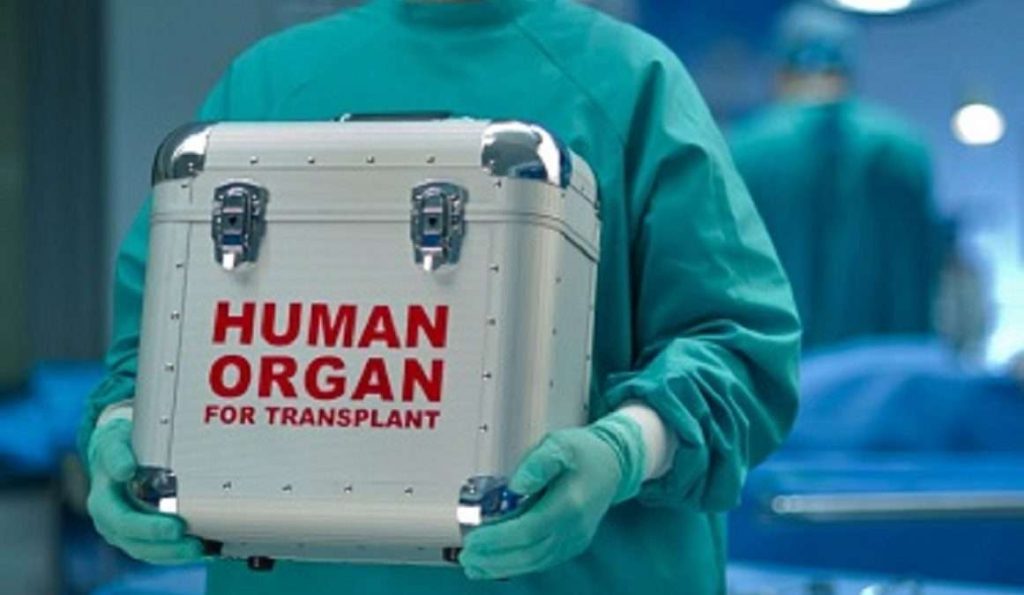(NA)
At the Vox website, Dylan Matthews offers a compelling defense of the proposed End Kidney Deaths Act. He makes good points, and I agree the act would be a major improvement over the status quo. But full legalization of organ markets would be better still. Here’s an excerpt from Matthews’ article:
What if I told you there was a way that the US could prevent 60,000 deaths, save American taxpayers $25 billion, and pay a deserving group of people $50,000 each? Would you be interested?…
I am not a spokesman. I am simply a fan and supporter of the End Kidney Deaths Act, a bill put together by a group of kidney policy experts and living donors that would represent the single biggest step forward for US policy on kidneys since … well, ever….
The plan is simple: Every nondirected donor (that is, any kidney donor who gives to a stranger rather than a family member) would be eligible under the law for a tax credit of $10,000 per year for the first five years after they donate. That $50,000 in total benefits is fully refundable, meaning even people who don’t owe taxes get the full benefit.
Elaine Perlman, a kidney donor who leads the Coalition to Modify NOTA, which is advocating for the act, based the plan on a 2019 paper that estimated the current disincentives to giving a kidney (from travel expenses to lost income while recovering from surgery to pain and discomfort) amounted to about $38,000. That’s almost $50,000 in current dollars, after the past few years’ inflation.
The paper also found that removing disincentives by paying this amount to donors would increase the number of living donors by 11,500 a year. Because the law would presumably take a while to encourage more donations, Perlman downgrades that to about 60,000 over the first 10 years, with more donations toward the end as people become aware of the new incentives. But 60,000 is still nothing to sneeze at….
The End Kidney Deaths Act is trying to solve a fundamental problem: Not nearly enough people are donating their kidneys….
In 2021, some 135,972 Americans were diagnosed with end-stage renal disease, meaning they would need either dialysis or a transplant to survive. That year saw only 25,549 transplants. The remaining 110,000 people needed to rely on dialysis.
Dialysis is a miraculous technology, but compared to transplants, it’s awful. Over 60 percent of patients who started traditional dialysis in 2017 were dead within five years. Of patients diagnosed with kidney failure in 2017 who subsequently got a transplant from a living donor, only 13 percent were dead five years later.
Life on dialysis is also dreadful to experience. It usually requires thrice-weekly four-hour sessions sitting by a machine, having your blood processed. You can’t travel for any real length of time, since you have to be close to the machine. More critically, even part-time work is difficult because dialysis is physically extremely draining.
An estimated 40,000 Americans die every year for lack of kidneys available for transplant. If enacted, the End Kidney Deaths Act would save many of these people. In addition, as Matthews points out, the $50,000 per kidney tax credits would easily pay for themselves, because kidney dialysis is vastly more expensive, and Medicare ends up paying for most of that expense. If more people suffering from kidney failure could get a new kidney quickly, the government would save a lot money on dialysis expenses, and those people would be able to be more productive (as well as avoiding great pain and discomfort).
Matthews also has a good response to claims that paying for kidneys would amount to problematic “commodification”:
When you think of donor compensation as payment for work done, the injustice of the current system gets a lot clearer.
When I donated my kidney, many dozens of people got paid. My transplant surgeon got paid; my recipient’s surgeon got paid. My anesthesiologist got paid; his anesthesiologist got paid. My nephrologist and nurses and support staff all got paid; so did his. My recipient didn’t get paid, but hey — he got a kidney. The only person who was expected to perform their labor with no reward or compensation whatsoever was me, the donor.
This would outrage me less if the system weren’t also leading to tens of thousands of people dying unnecessarily every year. But a system that refuses to pay people for their work, and in the process leads to needless mass death, is truly indefensible.
I agree, and have made similar points myself. And Matthews deserves great commendation for donating a kidney, thereby quite possibly saving a life! At the very least, he probably saved the recipient from having to endure additional years of painful kidney dialysis.
The major shortcoming of the End Kidney Deaths Act is the implicit price control it creates. By setting the payment at $50,000, it prevents higher payments where that would be necessary to ensure adequate supply. While the Act would save thousands of lives, the estimates Matthews cites (some 6000 to 11,500 additional kidney donations per year) would still leave us many thousands of kidneys short, thereby still dooming many people to needless death, or at least additional years on kidney dialysis. This problem might be especially acute for patients whose genetics make it unusually difficult to find a matching donor. Conversely, if some potential donors are willing to sell for less than $50,000, there is no good reason to ban such transactions.
Full legalization of organ sales, with no price controls, would fix these problems. It’s basic economics 101 that markets function best if prices are allowed to fluctuate in response to supply and demand. In a free market, insurance companies, medical care providers, and others have every incentive to pay what it takes, as the alternative of kidney dialysis is far more expensive. If necessary, the government could subsidize consumption by the poor, as it already does for kidney dialysis and many other health care expenses.
Matthews includes a passage lauding the End Kidney Deaths Act in part precisely precisely because it falls short of authorizing a full-blown organ market:
The most common objection to compensating kidney donors is that it amounts to letting people “sell” their kidneys, a phrasing that even some proponents of compensation adopt. For opponents, this feels dystopian and disturbing, violating their sense that the human body is sacred and should not be sold for parts.
But “selling kidneys” in this case is just a metaphor, and a bad one at that. The End Kidney Deaths Act would not in any sense legalize the selling of organs. Rich people would not be able to outbid poor people to get organs first. There would be no kidney marketplace or kidney auctions of any kind.
What the proposal would do is pay kidney donors for their labor. It’s a payment for a service — that of donation — not a purchase of an asset. It’s a service that puts some strain on our bodies, but that’s hardly unusual. We pay a premium to people in jobs like logging and roofing precisely because they risk bodily harm; this is no different.
This formulation is clever. And I myself have noted parallels between organ markets and paying people for doing jobs involving physical risk, such as the work performed by lumberjacks and professional football players (both of whom accept far greater risks than those faced by kidney donors). Nonetheless, if we compensate kidney donors, it is difficult to deny that such compensation is at least in part for giving up a kidney.
And there is nothing wrong with that! If you believe in the principle of “my body, my choice,” the right to sell organs is one of the liberties that ideal entails. And there is no good reason to distinguish organ-selling from other potentially risk activities people are allowed to do for pay. If anything, organ markets are more defensible, because they can save many thousands of lives. By contrast, NFL players take greater risks to provide the rest of us with entertainment.
As for the fear that rich people will hoard or monopolize kidneys, that is highly improbable given that few people—rich or otherwise—are likely to have a need for more than one. In a nation of over 300 million people, full legalization would induce sufficient sales to fully cover the demand (roughly another 40,000 kidneys per year or so). If necessary, as noted above, government could subsidize the purchase of kidneys for poor people suffering kidney failure, as it does for other kinds of medical care for the poor.
A free market might be politically difficult to enact. But survey data suggests it may not be nearly as hard as is usually supposed.
In sum, the End Kidney Deaths Act would be a major improvement over the status quo. Matthews is absolutely right about that. But a more fully free market would be much better still.
In previous writings on organ sales, I have discussed the scope of the problem, and addressed standard arguments against organ market legalization, such as concerns that it would be too dangerous for organ donors, claims that it amounts to to immoral “commodification” of the body, and fears that it would lead to exploitation of the poor (see also here).
The post Two Cheers for the Proposed End Kidney Deaths Act appeared first on Reason.com.






